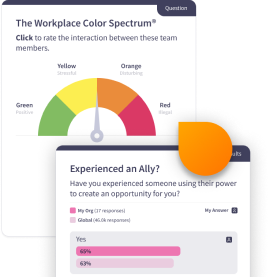
Practice Engagement Management and Team Development
Course Video Preview
How to create a performance plan for an unproductive employee.Wisely managing and developing team members is essential in today’s business environment, which makes coaching and mentoring training courses part of an essential modern work skill. Coaching and mentoring training for business managers is often a critical step in bringing new hires onboard and acclimatizing them to your culture, processes, and expectations. It can help high-performing employees advance their skills and commitment to the organization – and help average or low-performing employees be more productive. It improves the function of the team, department and entire organization.
The Coaching and Mentoring training course
will explain both the practical benefits for coaching and mentoring courses, along with the business case for the professional development of your workforce. We also provide learners with the practical skills needed to shift their point of view in order to filter through the facts and decide what's important to both them, and their mentees. Your learners will see how they can make an even bigger impact – for their teams and teammates.
Interactive polling questions in the Coaching Mentoring training course give employers real insight into how learners feel about the concepts and culture skills presented. Emtrain’s innovative Ask the Expert feature gives learners direct access to course experts.
Key Concepts- SMART framework for coaching and mentoring.
- How to compare actual performance against goals.
- How to explore options to enhance professional development and performance.
- How to create a specific written plan as a guide for future advancement.
Course Features
- Access to our Anonymous Ask the Expert tool
- Rich video scenarios based on real-world events
- Built-in employee sentiment surveys
- 50+ Machine Translation Options
- Optional program timer
- Policy acknowledgement tool
- Extensive customization options

Lessons
Building the Team You Need
What Is Coaching?
Developing the Qualities of a Coach
Shifting Your Point of View
The G in G-R-O-W
The R in G-R-O-W
The O in G-R-O-W
The W in G-R-O-W
What About You?
Post-Program Survey
What is coaching and mentoring training?
Coaching and mentoring training provides managers with tools and skills needed to effectively guide, build and train a strong and successful team with current employees and new hires so that they can reach their full potential.
Relevant Courses
Complementary Microlessons
Recommended Resources
From ‘Ask the Expert’
Emtrain’s Ask the Expert feature enables users to ask questions about compliance, bias, harassment, and diversity & inclusion as they come up. It’s all confidential, and answers are sent straight to their inbox. View some of the example questions below and see the Experts answers.

